|
Maintaining the ideal water parameters is the key to success when it comes to keeping a thriving reef tank. The delicate balance of the aquatic environment within your tank directly affects the health and growth of your corals and marine life. Let's dive into the essential water parameters you need to monitor for a successful reef tank, listed loosely in order of importance: 1. Salinity: Salinity, or the concentration of dissolved salts in the water, should mimic the natural levels of seawater, typically around 35 parts per thousand (ppt). Use a refractometer or hydrometer to measure and adjust as needed. 2. Temperature: Stable temperature is crucial for reef inhabitants. Aim for a range of 75-79°F (24-27°C) to prevent stress and disease. 3. Alkalinity: Alkalinity measures the water's ability to buffer against pH changes. It should typically fall between 7-12 dKH (degrees of carbonate hardness) to support coral growth and stability. What ever number you pick, try to stay there. Corals depend on stability and don't do good with changes. 4. Calcium: Corals require calcium for skeletal growth. Maintain levels between 380-450 ppm (parts per million) for healthy coral development. 5. Magnesium: Magnesium levels should be around 1200-1400 ppm. It helps regulate calcium and alkalinity levels, preventing issues like precipitation. 6. Nitrates: Keep nitrate levels low, ideally below 5 ppm, as high nitrates can lead to algae outbreaks and negatively impact coral health. 7. Phosphates: Maintain low phosphate levels (ideally below 0.03 ppm) to prevent excessive algae growth and promote coral health. 8. Trace Elements: Trace elements like iodine, strontium, and iron are needed in trace amounts. Use high-quality reef supplements to replenish these elements as they are consumed by your tank's inhabitants.
Monitoring these essential water parameters and performing routine water changes will create a stable and healthy environment for your corals and marine life. Consistency and stability are key to enjoying a thriving and beautiful reef tank.
1 Comment
The Dance of Light: Spectrum and IntensityLight Spectrum: Corals contain pigments called chromoproteins that absorb and reflect light at specific wavelengths. Different pigments are responsible for various colors, from warm reds to cool blues. Selecting the right lighting spectrum ensures optimal color expression. What is the Best Light Spectrum for Corals? Selecting the ideal light spectrum for your corals can significantly influence their coloration and overall health. While preferences vary depending on the coral species and your tank setup, the following guidelines can help:
Water Quality: The Crucial FoundationTemperature: Fluctuations outside a coral's preferred temperature range can lead to stress and altered coloration. Maintain stable water temperatures to promote health and color vibrancy. pH and Alkalinity: Proper pH and alkalinity levels are essential for coral calcification and growth. Acidic conditions can negatively impact coloration and overall health. Changing Alkalinity levels too quickly can cause harm to corals or cause them to "brown out" for a significant amount of time until they adjust to the new levels. Salinity: Sudden changes in salinity can stress corals, affecting their coloration. Regular monitoring and adjustments are vital. Trace Elements: Trace elements, such as iron, magnesium, and strontium, play a role in pigmentation and coloration. Ensure these elements are present in appropriate amounts. Nutrient Levels: The BalancePhotosynthesis: Many corals derive energy from photosynthesis by hosting symbiotic algae called zooxanthellae. Proper lighting ensures efficient photosynthesis, providing essential nutrients for growth and color. Supplemental Feeding: Some corals benefit from supplemental feeding. Offer appropriate foods like phytoplankton, zooplankton, or coral-specific supplements to support coloration and health. Nitrate and Phosphate: Elevated nitrate and phosphate levels can lead to excessive algae growth, shading corals and dulling their colors. Also, having zero Nitrates and Phosphates can cause corals to become pale and loose their color. We shoot for 1-10ppm Nitrates and 0.01-0.03ppm Phosphates in our systems, although reefers have had great success with other nutrient levels. If you are having trouble keeping your Nitrates or Phosphates above zero you can simply feed your fish or corals more often. There are also products available to raise levels such as Sodium Nitrate pellets and Brightwell's NeoPhos. While products exist to lower Nitrates and Phosphates, we recommend simply feeding less, lowering bio-load, adding more live rock or doing more frequent water changes to lower levels if needed. Acclimatization and Stress MitigationAcclimatization: When introducing new corals to your tank, acclimate them gradually to avoid shocking them with sudden changes in lighting, water parameters, and flow. Stress Mitigation: Stressed corals often display faded coloration. Minimize stress by maintaining consistent tank conditions and avoiding sudden changes. In conclusion, the captivating hues of corals are a testament to their well-being and environment. By mastering the art of lighting, maintaining water quality, managing nutrient levels, providing proper nutrition, and minimizing stress, you can unlock the full spectrum of colors within your reef. A thriving coral ecosystem is not only a visual delight but also a sign of a healthy, balanced underwater world where beauty and vitality coexist in perfect harmony. Start off with the brightest corals and get on track to having a super vibrant reef! Buy Corals Online: 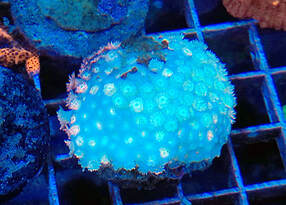 Pink Goni - Bleaching White Pink Goni - Bleaching White Coral bleaching is a phenomenon that occurs when coral polyps, the tiny animals that make up a coral reef, expel the algae that live inside their tissues. This can happen for a variety of reasons, but the most common cause out in the natural reef is a rise in water temperature. When the water gets too warm, the coral polyps become stressed and kick out the algae. Without the algae, the coral turns pale or white, what we refer to as "bleaching." In your home aquarium things are a bit different. We are tasked with more than just controlling the water temperature. We are responsible for supplying the corals with EVERYTHING they need to survive. In the ocean things naturally stay more stable as a new supply of water is flowing over the corals every day. In the home aquarium it is far harder to keep levels stable. Some corals are more forgiving of our mistakes than others and some corals have very strict demands. 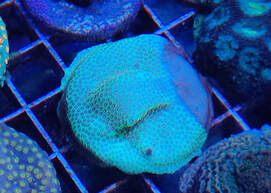 Porites Bleaching (+ sting damage) Porites Bleaching (+ sting damage) If your corals are bleaching the first thing you should do is think back on if you've made any changes or have added anything to the water within the last few days. Sometimes it takes a couple days for a coral health issue to progress to an extent that it is apparently visible. Here are some common causes of coral bleaching that we see in the aquarium hobby... Lighting - Most often corals bleach from the par of your lighting being too much for the coral to handle. If this occurs the coral will eject it's zooxanthella in an attempt to regulate it's bioactivity. For this reason many reefers start their corals down low and gradually expose them to higher par until they are happy in the final location chosen by the hobbyist. This process may need to be stretched out over the course of a few weeks. Nutrients (nitrates) also play a role in how much light a coral can handle. Typically corals can benefit from higher par only if there are nitrates present in the water. A coral that was doing just fine in high par can begin to bleach if your nitrate levels drop too low. Temperature - If you are the unlucky person who has discovered your aquarium heater has become stuck in the "on" position and your water is hot then you know how this can be devastating to your home reef aquarium. Depending on where you live, hot summer days can be enough to raise your tank's temperature to critical levels. We recommend a tank temperature of 75-78F and we set ours at 76F. Bleaching may occur somewhere around 85F and gets worse the higher you go. If you discover your tank is too hot we recommend you don't remove the corals unless the water is cloudy. Let the tank temp come down slowly on it's own and add sealed bags of ice to help if needed. It is important not to do anything too stressful and to make any changes as slow as possible. 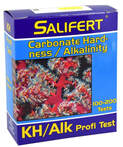 Alkalinity/PH Changing Alkalinity levels too quickly is a leading cause of coral bleaching or death. We recommend testing every batch of newly mixed salt water for Alk levels before doing a water change. Also if you are dosing for Alkalinity try to raise or lower it as slow as possible. We shoot for less than 1dKH per week if making adjustments. Also it is very important to never dose a water chemistry product if you can't or didn't test levels. There is no need for guesswork with all of the great affordable testing equipment that is available to us hobbyists. Alkalinity is a measure of the ability of the water to neutralize acids, and it is important for coral health because it helps to maintain a stable pH level in the water. Coral polyps, the tiny animals that make up a coral reef, need a specific range of pH to survive and grow. If the pH level in the water becomes too low or too high, the coral can become stressed, which can lead to bleaching or death. Alkalinity plays a key role in regulating the pH level in the water. If the alkalinity is too low, the water will be more susceptible to changes in pH, which can harm the coral. On the other hand, if the alkalinity is too high, the water will become more alkaline, and the coral will also be stressed. It is important to maintain the appropriate level of alkalinity to ensure that the pH level stays within the optimal range of 7-12 dKH for the coral and to limit changes to less than 0.2 dKH per day. Toxins and Contaminants There are other stresses on coral that can lead to bleaching. The "quick cures" sold online that promise fast results to combating common issues faced by aquarists can cause problems. Many of these can have adverse effects on coral health and should be used with caution or avoided altogether. If you are thinking of using a product to change something in your tank be sure to always follow directions and think of how it may effect other parameters. Toxins can also be added to your water from certain corals or pests. Nepthea coral is known to secrete a toxic compound into the water that can be harmful to other corals. Flatworms are also very toxic when they die. Sea cucumbers have also been known to release toxins if they were to die in your tank. Check for issues and if you find an animal that has died take care to remove as much of it as possible. Talk to Other Reefers There are a ton of great resources out there for finding and diagnosing problems with your coral health. Join your local reefing club or group online and chat with fellow reefers about your problem. You'll find that there are a lot of people willing to give you advice. It's a good idea to weigh the advice based on the persons professionalism and years of experience. Advice that is given by many seasoned reefers should be considered more reliable but may not always be the best option. Do your research and remember that nothing good happens quickly. Go slow and try not to make big changes and your reef will reward you with great colors and growth. Recovery If we have a coral that is bleaching then what do we do? First we inspect for "critters" or any nearby corals that might be stinging it. Then we clean, dip and move the coral to a lower par lighting area. If it's just one of your corals that is bleaching then moving it to a lower lighting area typically solves the problem. It may take weeks or months to regain it's color and dosing live zooxanthella may help the coral recover. If more corals are bleaching in different parts of your tank (that were otherwise doing fine previously) then we go right to checking nitrates. If they are reading zero then you can raise them with sodium nitrate or by feeding more often. Your corals may be starving and a little nutrition can make them happy. If you have any other ideas to be added to this list, please let us know in the comments! |
Categories
All
AuthorBrian Hale has enjoyed 25+ years of dedicated involvement in the reefing community. His commitment to research and extensive hands-on experience makes him an invaluable source of expertise within the reefing hobby. |
Buy Corals Online: TheCoralFarm.com
Aquacultured Corals - Fast Nationwide Shipping USA
1-800-254-4253
Aquacultured Corals - Fast Nationwide Shipping USA
1-800-254-4253
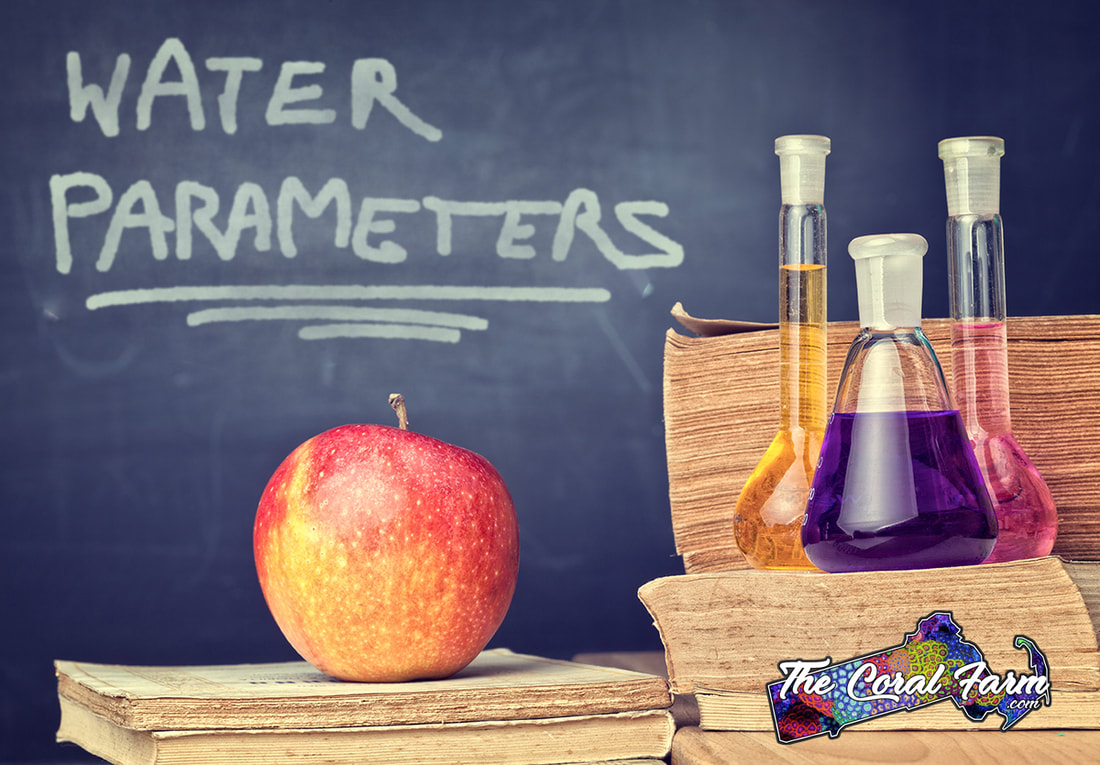
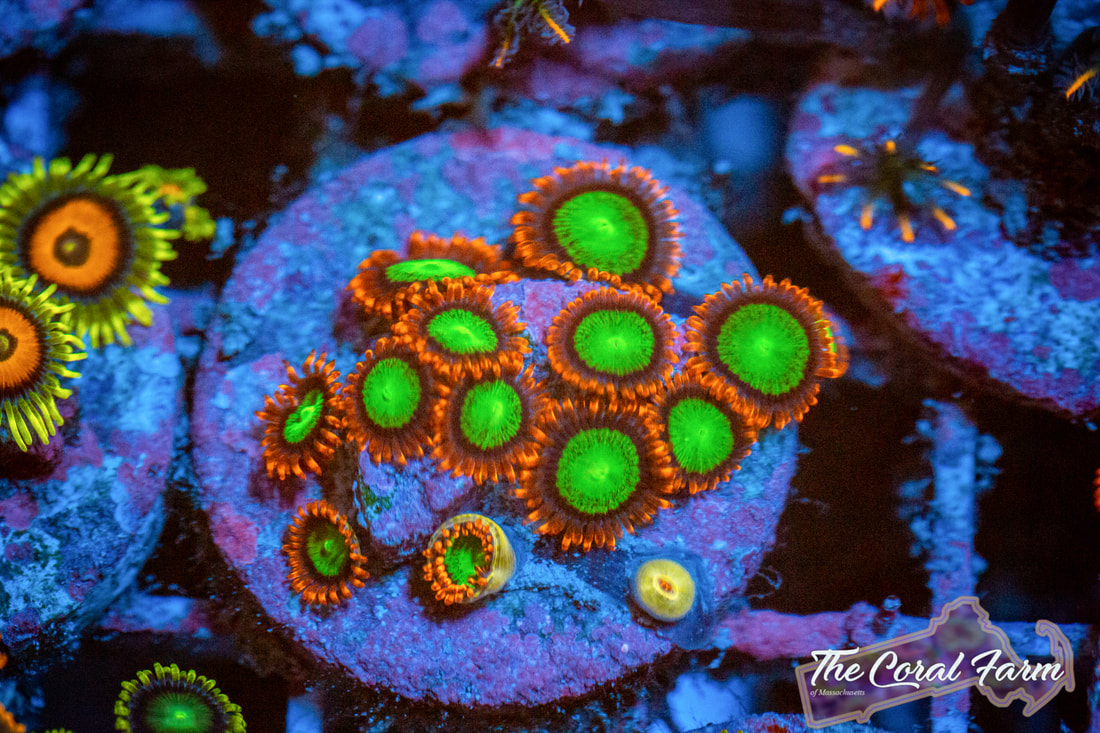
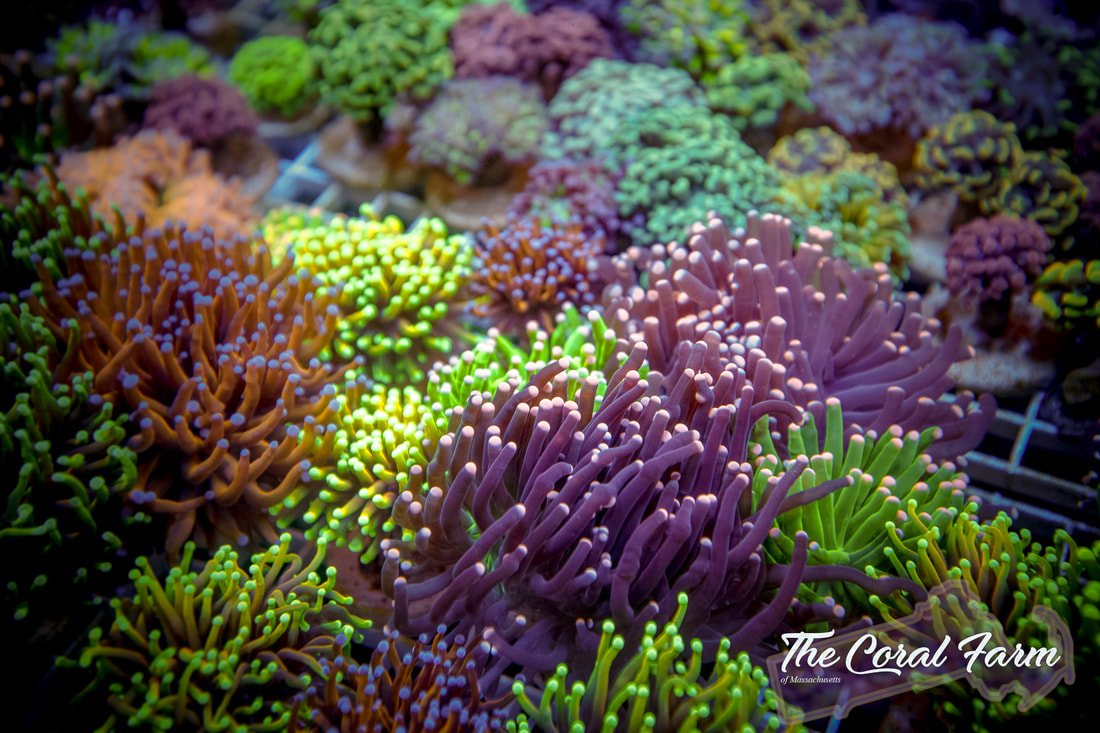
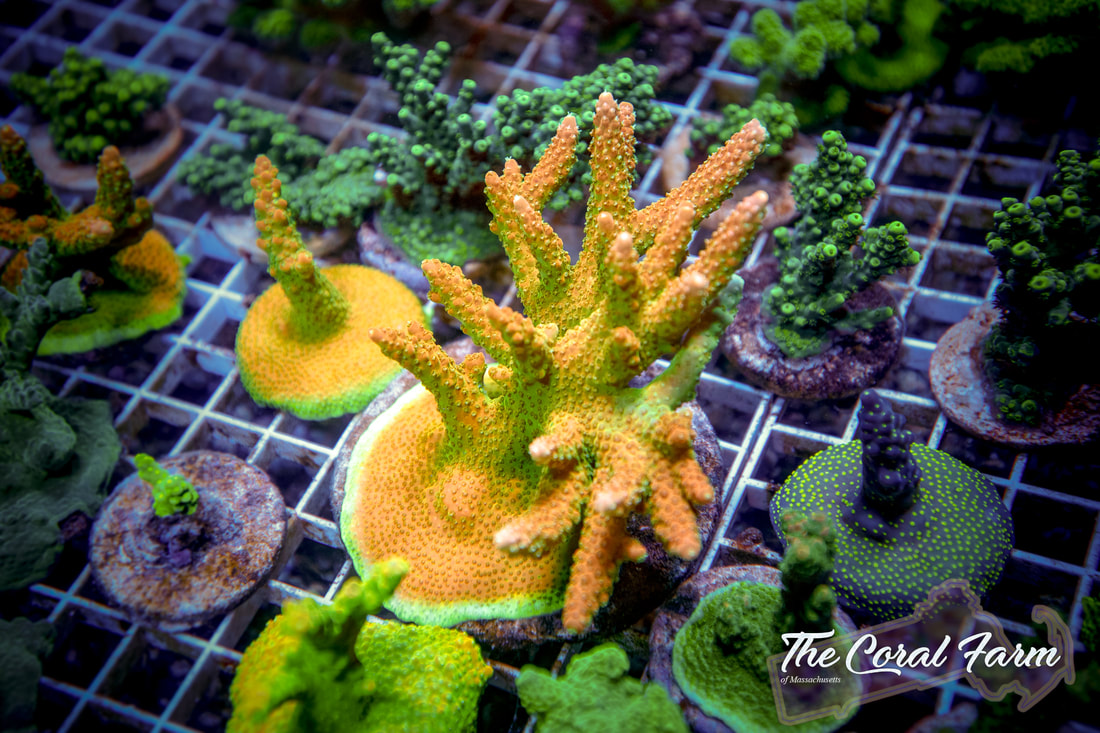



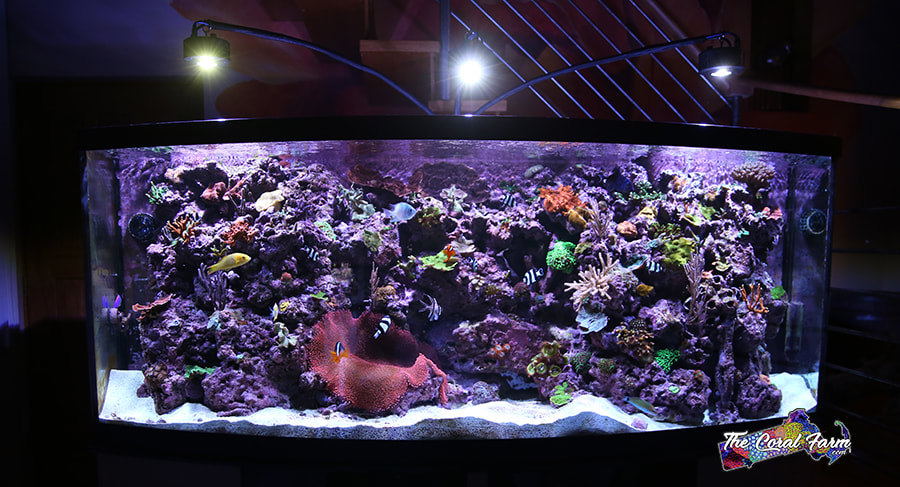
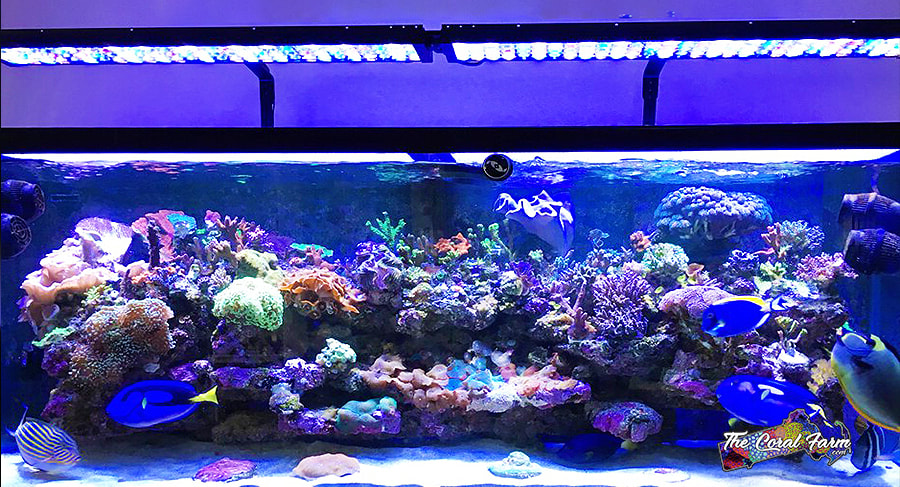

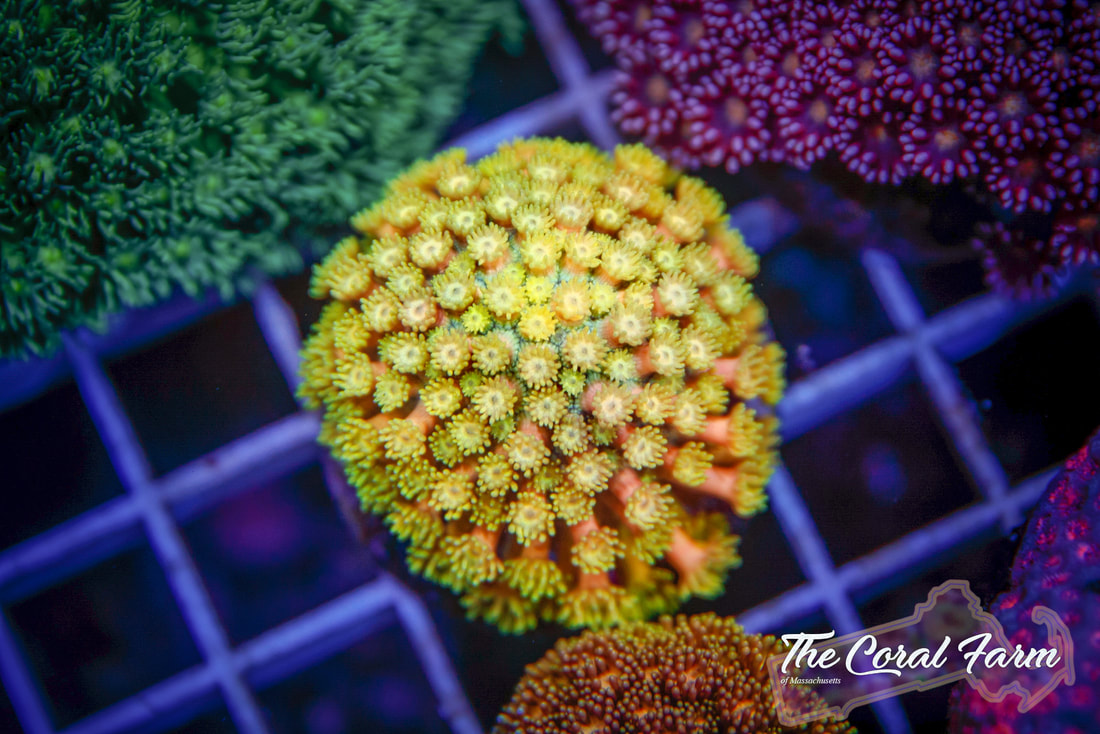
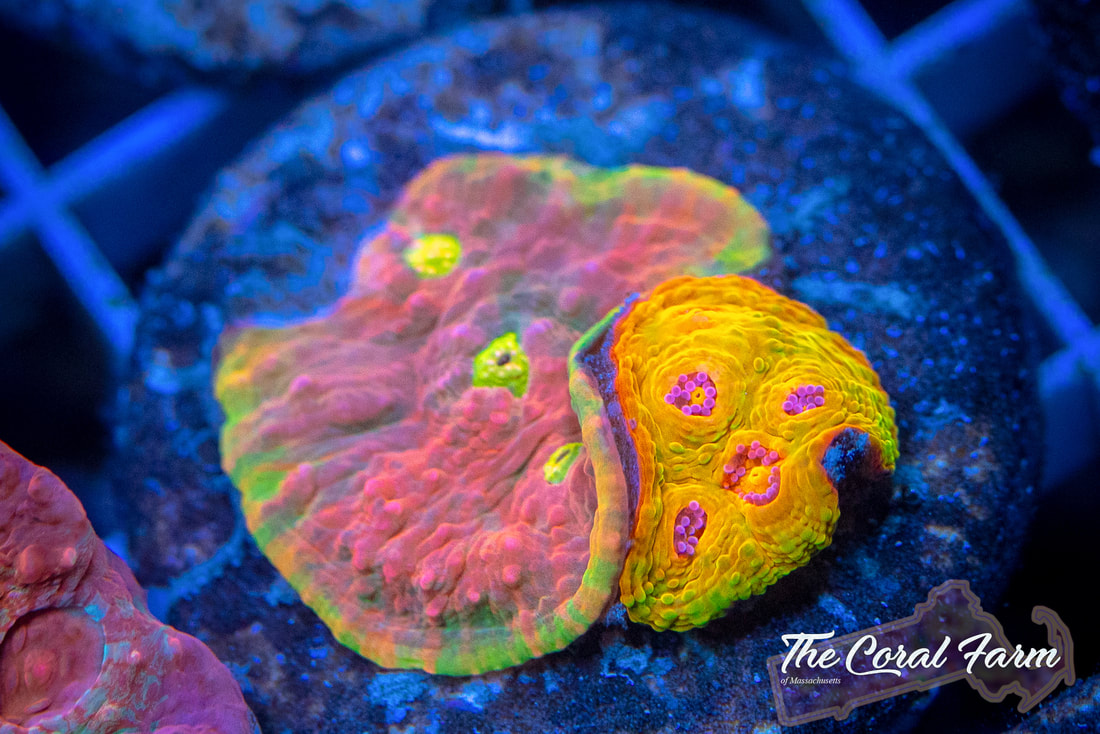
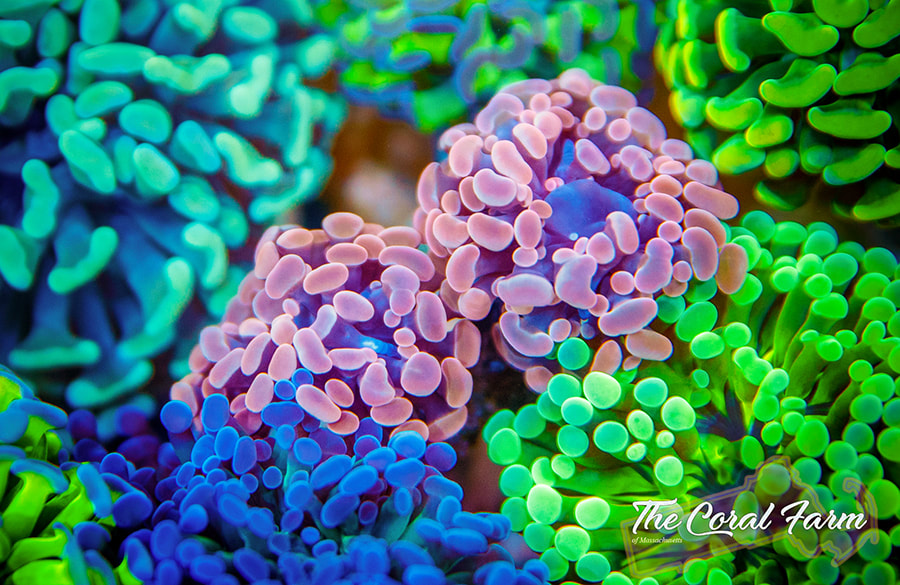
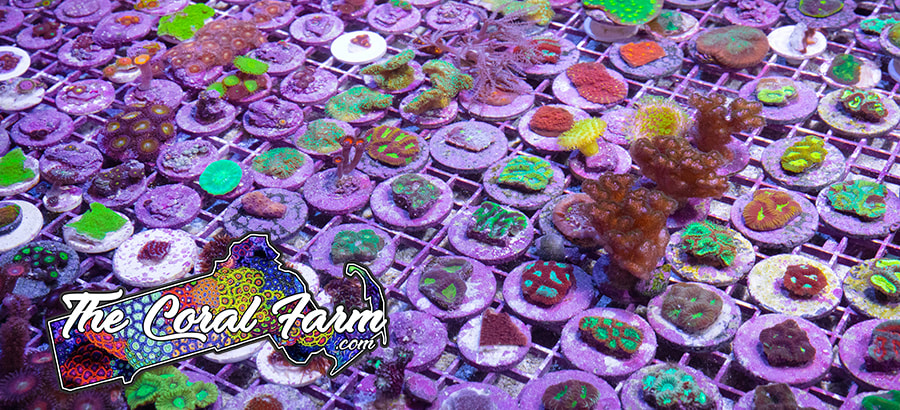
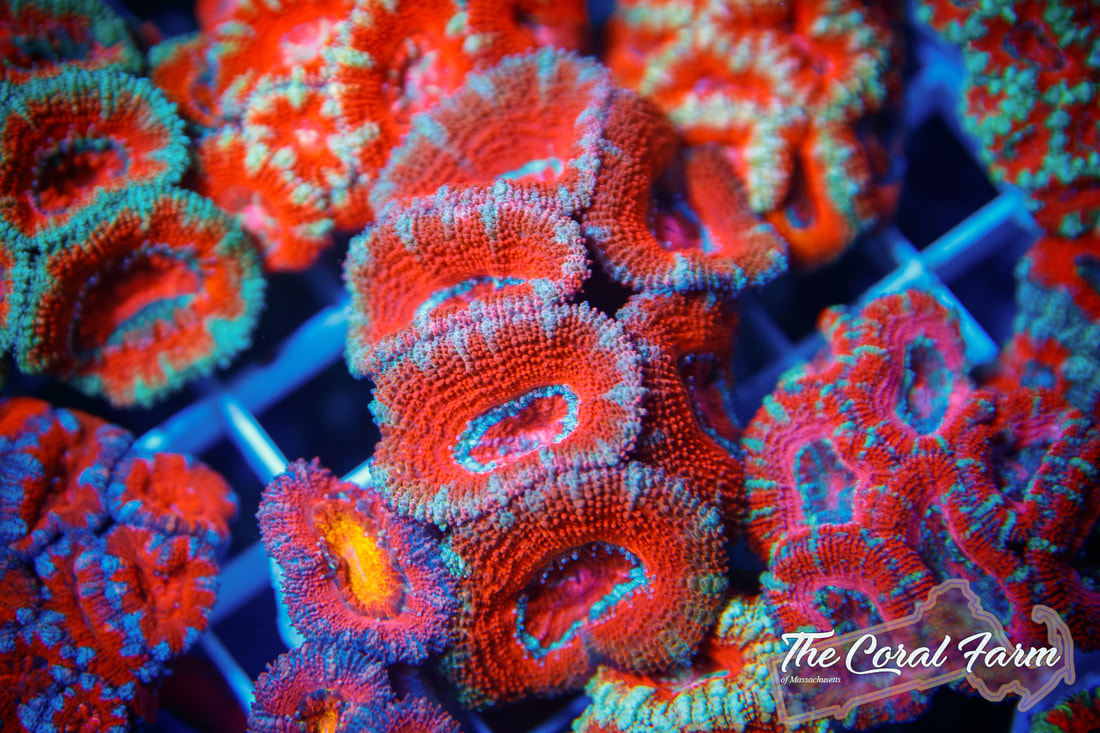
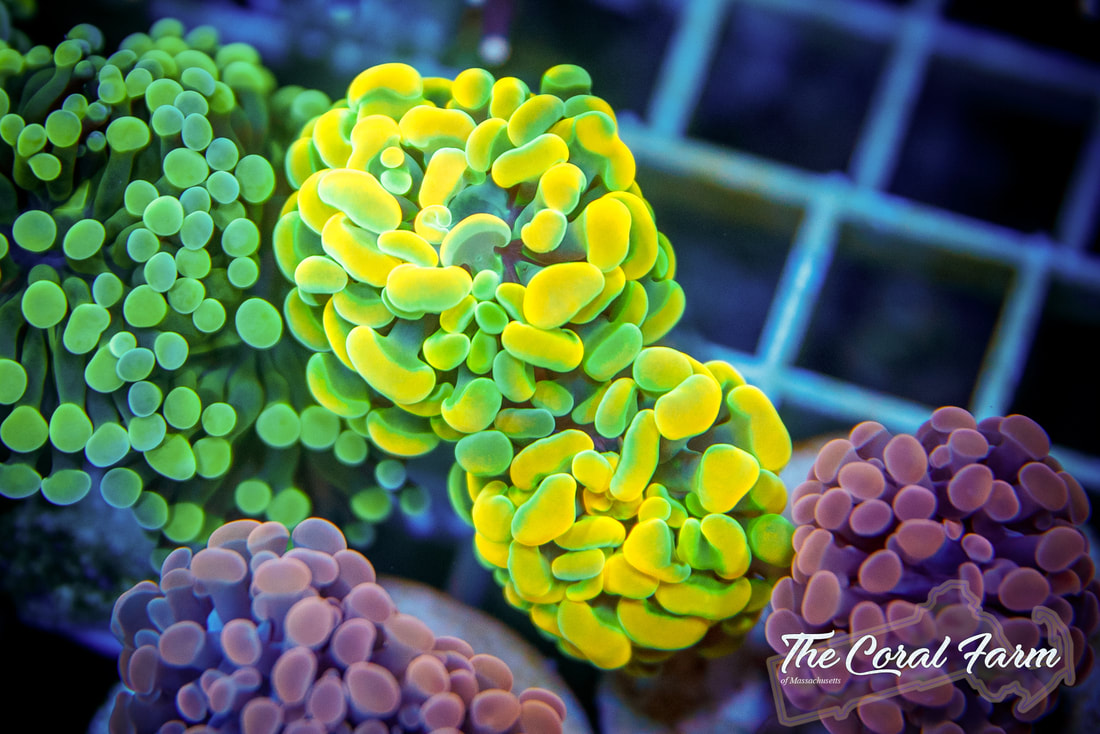
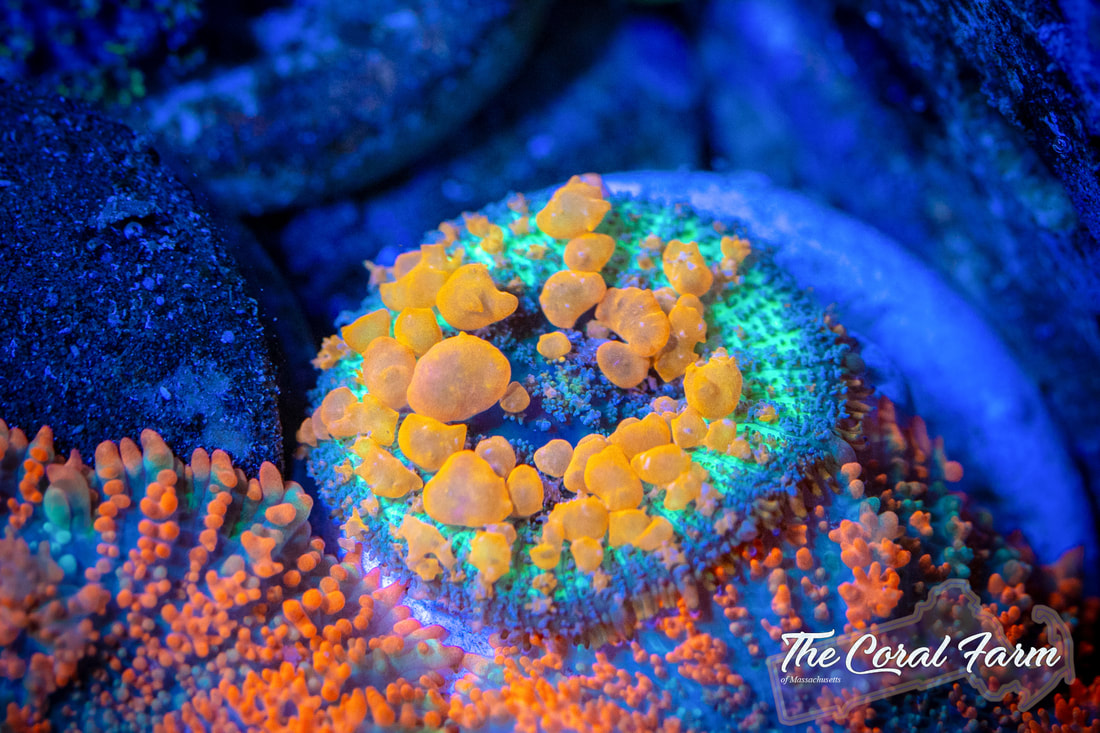

 RSS Feed
RSS Feed
